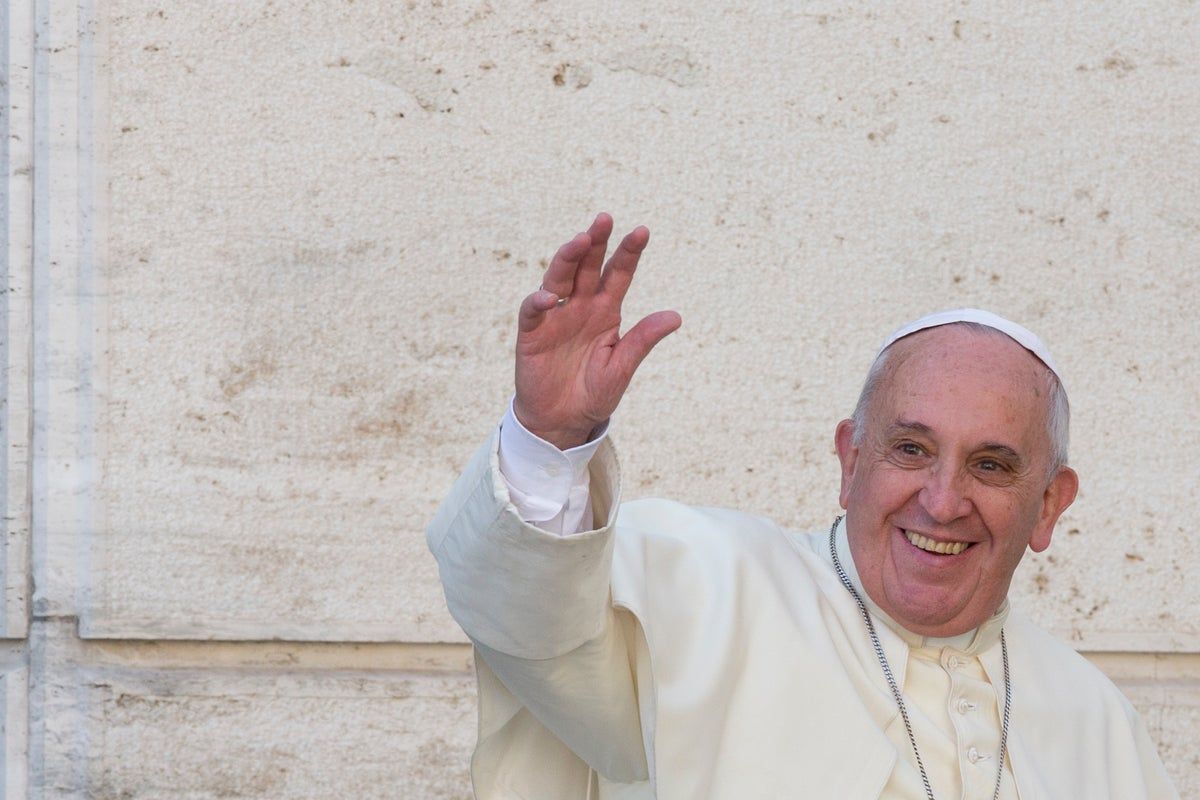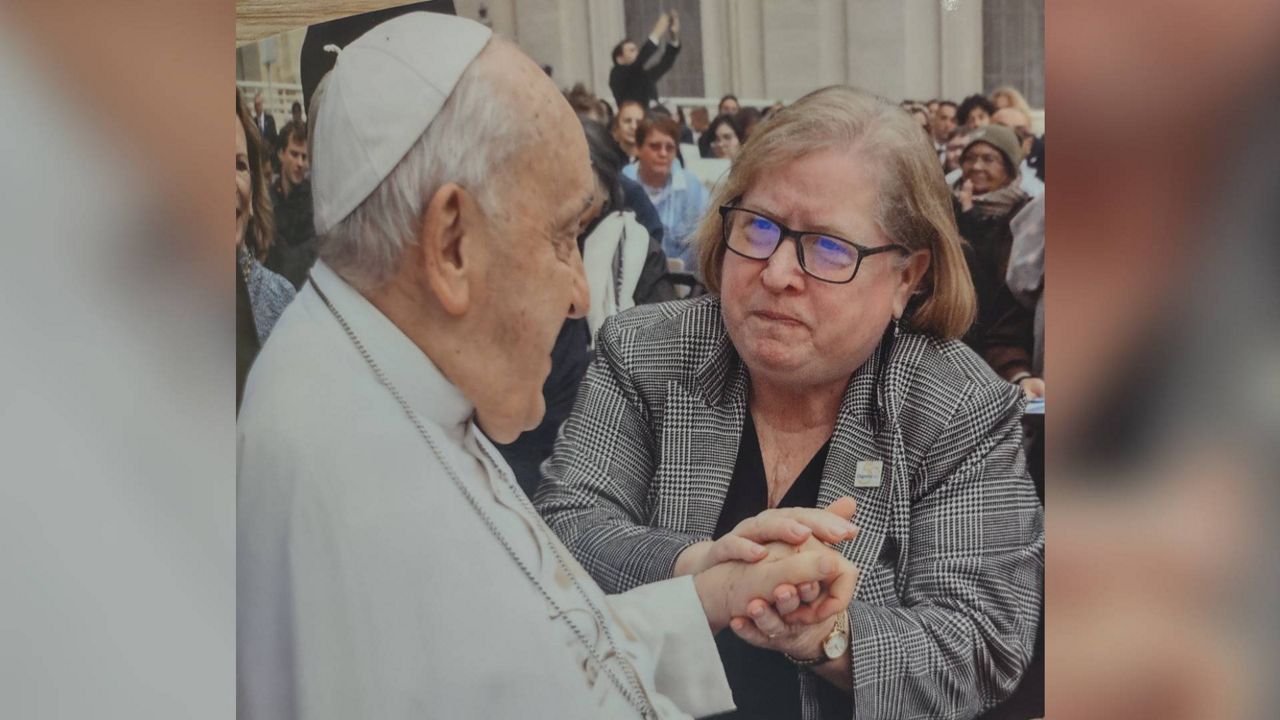Pope Francis' LGBTQ+ Views: A Look At Blessings & Doctrine
Has the Vatican truly embarked on a new era of inclusivity, or is the shift more nuanced than initially perceived? The recent pronouncements from the Vatican, particularly regarding blessings for same-sex couples, mark a significant moment, yet a closer examination reveals a complex tapestry of evolving doctrine and enduring constraints.
The landscape of the Catholic Church's stance on LGBTQ+ issues has undoubtedly shifted under the papacy of Pope Francis. While the core doctrine inherited from previous pontificates remains unchanged, the tone and approach have undergone a notable transformation. This evolution is underscored by the theological reflection and pastoral vision advocated by the current pontiff, representing a development from prior pronouncements on blessings, as the Doctrinal Dicastery explains how and when blessings for same-sex couples can be carried out.
On October 18, 2023, a pivotal moment occurred, revealing a change in Vatican policy. The focus shifted towards the idea that individuals seeking God's love and mercy should not be subjected to exhaustive moral analysis. This marked a crucial departure, paving the way for more open interactions with the LGBTQ+ community.
| Pope Francis | Details |
|---|---|
| Full Name | Jorge Mario Bergoglio |
| Born | December 17, 1936, Buenos Aires, Argentina |
| Nationality | Argentine, Vatican City citizen |
| Profession | Catholic Priest, Jesuit, Bishop, Cardinal, Head of State |
| Papal Name | Pope Francis |
| Papacy Began | March 13, 2013 |
| Previous Roles | Archbishop of Buenos Aires, Cardinal |
| Key Actions & Statements | Emphasized mercy and inclusivity; Used the words 'gay' and 'transgender'; Met with LGBTQ+ individuals on numerous occasions; Issued statements on climate change, poverty, and social justice |
| Significant Documents | Evangelii Gaudium (The Joy of the Gospel); Laudato si' (On Care for Our Common Home); Fratelli Tutti (On Fraternity and Social Friendship) |
| Controversies | Handling of sexual abuse scandals; Certain conservative criticisms of his reforms and statements |
| Reference | Vatican Website - Pope Francis |
The implications of these shifts were wide-reaching. The use of the words "gay" and "transgender" by Pope Francis, coupled with his meetings with LGBTQ+ individuals, marked a departure from previous papal communication. This seemingly subtle shift in vocabulary and personal interaction signaled a willingness to engage directly with a community that had often felt marginalized by the Church.
The Vatican's evolution during this period extended to practical matters, such as the evolving discussion around blessings for same-sex couples. These blessings, as articulated by the Doctrinal Dicastery, were intended to offer spiritual support without altering core doctrinal positions. The key here lay in the distinction between blessing individuals and condoning specific actions; the former was seen as an act of pastoral care, while the latter remained a matter of established doctrine.
Pope Francis's insistence on an open Church, central to his pontificate, served as a consistent message. He reiterated his vision of inclusivity during interviews, recognizing the need to approach individuals with compassion and understanding. This stance, frequently reported in the press, became a cornerstone of his public image and a significant talking point for those both inside and outside the Catholic Church.
The shift was not without its detractors. Some within the Church viewed the changes with concern, fearing that they represented a compromise of fundamental teachings. The 2021 statement, which indicated transgender individuals should not be accepted into seminaries, underscored limits to the apparent progressivism. It highlighted the challenges of reconciling evolving pastoral practices with deeply rooted theological positions.
The impact of these shifts is still being assessed. The actions of Pope Francis led to extensive reporting and commentary, and he made some of his most famous statements on LGBTQ+ people. His comments were welcomed by many. For example, the LGBTQ group Gay Catholic Voice Ireland noted it was the first time a pope used the word "gay," which originated from within the LGBTQ community, rather than "homosexual", a word originating from the medical profession.
This is a developing story, and one that continues to evolve. The interplay between doctrine, pastoral care, and social acceptance remains a key concern. The Church is grappling with how to balance its traditional teachings with a modern desire for inclusivity and understanding. The future will likely bring more reflection and discussion about this evolving situation.
During a Sunday interview with an Italian talk show, Francis doubled down on his stance, stating that "the Lord blesses everyone." This phrase, simple yet powerful, became one of his most quoted sentiments on the issue. It reflected his deep-rooted belief in the universality of God's love, extending to all people regardless of their background or identity. This statement, more than any policy directive, captured the spirit of his papacy.
In St. Peter's Square at the Vatican, newlywed couples meet with Pope Francis during the weekly general audience. This is a common occurrence, and one that exemplifies the way that the Church attempts to be welcoming. Pope Francis's emphasis on family and mercy makes this interaction even more meaningful to these couples, as they seek to start their new life with the blessings of God.
As the Vatican navigates these complex waters, it is crucial to recognize that the story is still unfolding. The shifts in policy, coupled with the Pope's personal statements, signify a genuine attempt to modernize the Church's approach. However, the limits of this change remain a subject of intense debate and analysis.
The Church's evolving stance on LGBTQ+ issues highlights the ongoing dynamic. These policies are subject to change and continued debate within the Vatican. The path of the papacy of Pope Francis has been one of significant and sometimes controversial change.
It's essential to recognize that the Church's perspective is complex, involving both deeply-held theological principles and evolving understandings of human experience. The ongoing dialogue within the Church is critical. The Church will continue to address these complex issues, aiming to balance faith with compassion and promote a more inclusive environment.
The changes are part of the evolution of a global institution, reflecting societal changes and the increasing importance of dialogue and pastoral care. The future trajectory of the Church's relationship with the LGBTQ+ community remains a compelling story with an impact across the globe. The current pontificate has shown a willingness to reassess and update its approach, which continues to shape the perception of the Church in the modern world.
Pope Francis' pontificate continues to shape how the Church interacts with the broader world, with its focus on mercy, understanding, and dialogue. The story of the Church and the LGBTQ+ community is ongoing, and the legacy of Pope Francis will continue to resonate. It will likely lead to further exploration and discussions within the Church and beyond for years to come.


